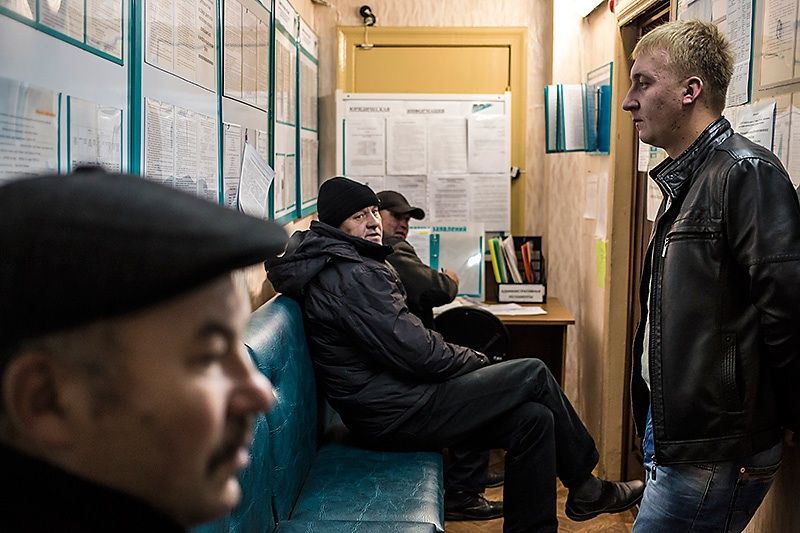BAIKALSK, Russia -- A tide of discontent is sweeping across Russia's "rust belt" as the Kremlin tries to convince tens of thousands to relocate from their homes.
Authorities are offering up to $25,000 in state support for people willing to leave 142 struggling so-called "monotowns," communities depending on a single industry.
Many Russians are unhappy about being asked to leave places that several generations of their families have called home. Critics also allege the level of compensation isn't enough and say it will create dozens of "ghost towns."
In Baikalsk, the economy has been devastated by the recent bankruptcy of the monotown's only major employer — a pulp and paper mill that polluted the world's deepest lake for decades until it went bankrupt in mid-September.
But Vladimir Shikhanov, a 53-year-old pipefitter who earned about $362 a month at Baikalsk's mill, is skeptical about the Kremlin's plan to move laid-off workers elsewhere.
"I honestly earned pennies, but still income," he said. "I am struggling to sell my house for $2,000 — nobody wants it. If I move to a big town, I will have to spend at least $60,000 to buy myself a place."
By Dec. 28, the final 800 mill workers will lose their jobs — another significant blow to the Siberian town of 14,000 people.
The fate of 700 other people still employed at a different part of the mill which provides heat to all of Baikalsk will be decided by the spring.
Russian Prime Minister Dmitry Medvedev last year pledged $1 billion to transform the town on the edge of Lake Baikal into a tourist hotspot. Lake Baikal is a natural treasure that contains more water than all of the Great Lakes combined.
But there has been little sign of investment in the wake of Medvedev's visit. The town’s central square remains unpaved, hotels and cafes struggle and local newspapers publish pages of advertisements placed by residents looking to sell their apartments in Baikalsk and move closer to Moscow or St. Petersburg.
The lack of action has resulted in angry protests by fired workers in the regional center of Irkutsk.
“The Kremlin simply lied to us; they promised to first create jobs and then close the mill in 2015," said Yuri Nabokov, the leader of the mill’s professional union. "The mill is closed and hundreds of workers have no chance to live their normal lives in their hometown with their families; authorities tell us to go to far north and work on shifts at oil fields — that makes us even angrier."
Local officials remain upbeat about Baikalsk's future. One proposal would see a Chinese company build a factory producing energy-saving lightbulbs in the city, which could create up to 1,000 jobs.
"This 45-year-old city has everything to prosper, the most beautiful lake and mountains," Baikalsk Mayor Vasiliy Temgenevsky said. "The city is going through the worst moment right now, a temporary gap, when the plant closed down and there are no alternatives; but we need optimists to succeed."
Pointing to the neighboring monotown of Vydrino, some worry that Baikalsk faces an uncertain future without the mill.
"After Vydrino's main industry, a timber mill, shut down and burned, many houses became abandoned," said environmental activist Taisa Baryshenko, gesturing toward broken windows in now-empty homes.
Two years ago, the Kremlin estimated that the government would need to invest $33.8 billion to modernize Russia's 100 most vulnerable monotowns. But the the ambitious 2014 Winter Olympics in Sochi, Russia, have cost more than $50 billion, overshadowing their plight.
Yevgeny Gontmakher, a prominent economist who is also a member of the board of the Institute of Modern Development, said that ending up like Vydrino appeared unavoidable for some struggling monotowns.
"Once the main factories shut down, young people move out of monotowns with declining economies, so it is only old retired people ... who continue to live in such ghost towns," he said.
But Shikhanov, the unemployed pipefitter, has not lost all hope.
In a corner of his garage, he kept a few glass jugs full of wild cranberries and foxberries that he picked with his wife earlier this fall. Those wild berries and strawberries grown in their garden are Shikhanov’s only reliable source of income.



